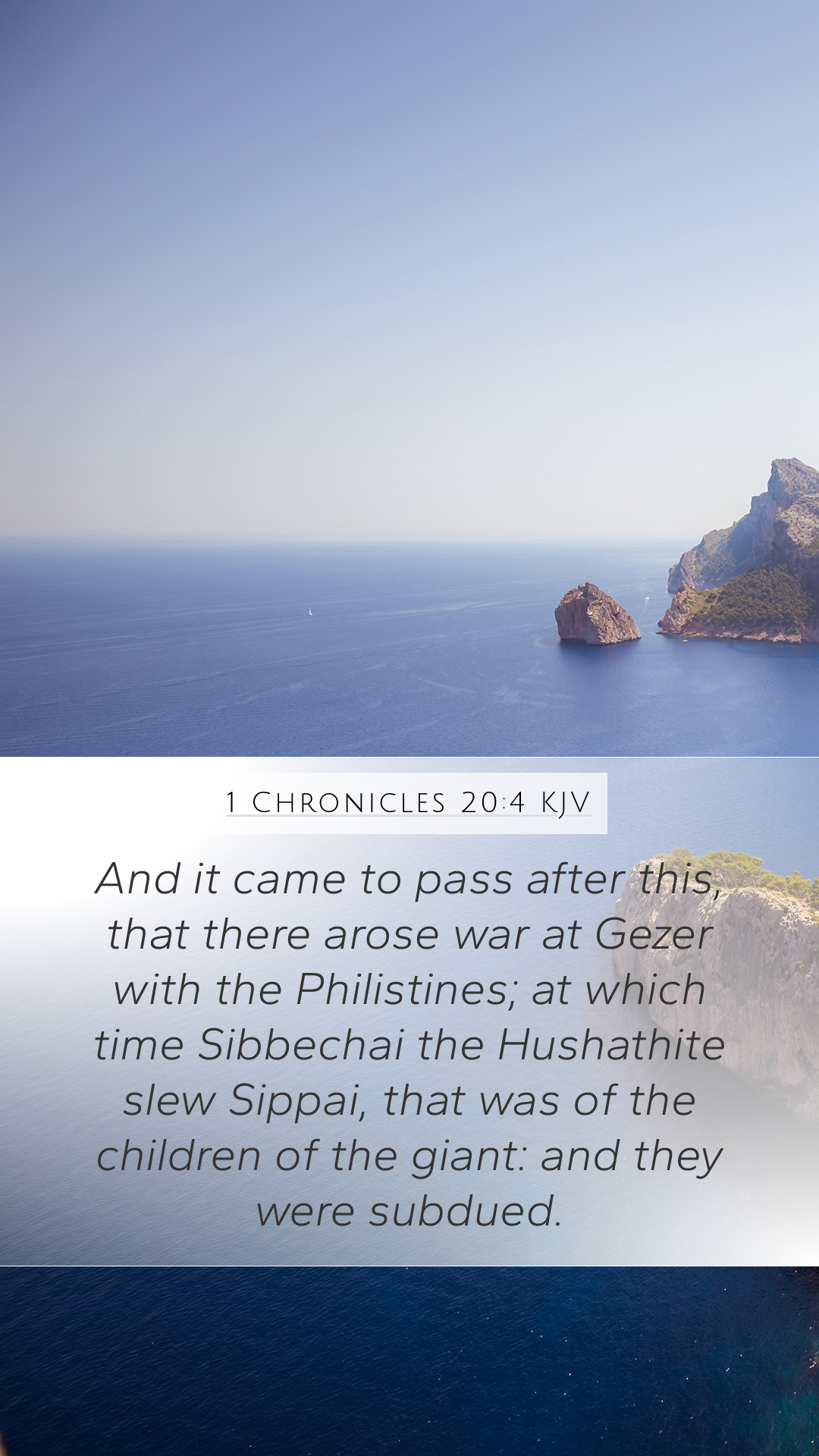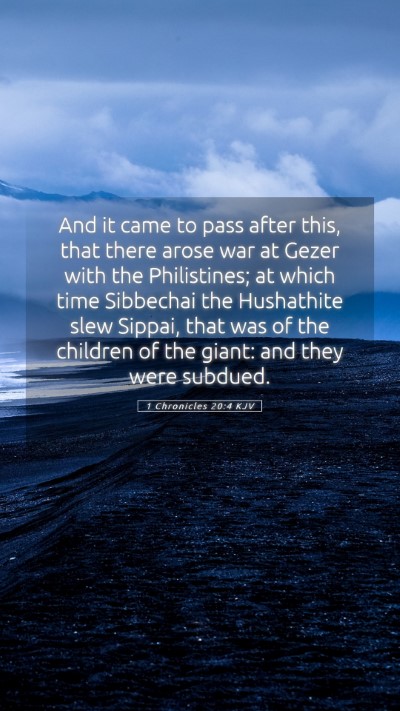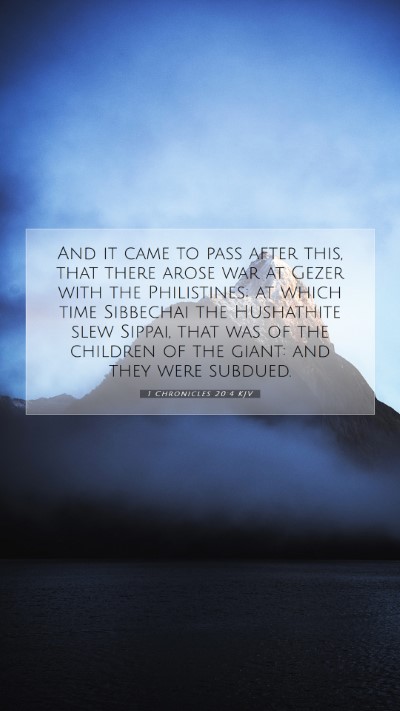Understanding 1 Chronicles 20:4
Bible Verse: 1 Chronicles 20:4 - "And it came to pass after the year was expired, at the time that kings go out to battle, that Joab led forth the power of the army, and wasted the country of the children of Ammon, and came and besieged Rabba. But David tarried at Jerusalem. And Joab smote Rabbah, and destroyed it."
Bible Verse Meaning and Interpretation
This verse presents a significant moment in the historical narrative concerning King David and his military campaigns. It emphasizes the mundane realities of leadership, war, and the complexities of human character through the actions of Joab and David.
- Contextual Background:
The events occur during a time of war, particularly focusing on the cities of the Ammonites and their conflict with Israel. The scripture highlights a pivotal point in Israel's military history and King David's role as a leader.
- The Role of Joab:
Joab is depicted as a capable military leader who takes charge of the army and succeeds in the siege of Rabbah. His actions reflect the loyal yet often ruthless nature attributed to him throughout the biblical narrative.
- David's Withdrawal:
David’s decision to remain in Jerusalem can be interpreted in various ways—ranging from strategic leadership to personal failure, suggesting a potential neglect of duty or an expression of his character's complexity.
Bible Commentary Insights
Insights from public domain commentaries provide a deeper understanding of this verse. Matthew Henry, Albert Barnes, and Adam Clarke offer various perspectives on the narratives and implications.
Matthew Henry's Commentary
Matthew Henry discusses the importance of the timing of events in this verse, indicating that military operations were usual in the spring. He reflects on David's absence from the battlefield, suggesting it leads to personal strife reflected in subsequent chapters.
Albert Barnes' Notes
Barnes highlights the significance of Joab's leadership in the battle. He notes that Joab's military acumen shines through as he decisively engages the enemy. This establishes Joab as a pillar in the military endeavors of David, hinting at the complexity of their relationship.
Adam Clarke's Exposition
Clarke addresses the geographical and historical context of the conquest of Rabbah, asserting that it signifies a victory for Israel under Joab's command. He enriches the narrative by suggesting that this event foreshadows future strife in David’s reign, pointing to a period of moral decline.
Biblical Exegesis
From a scholarly perspective, exegesis of this verse encompasses several layers of meaning, historically and morally.
- Historical Context: This passage signifies a period of expansion for Israel as they defeat their enemies. It also reflects on the role of leaders in conflicts and the consequences of their decisions.
- Moral Implications: The dynamics of military leadership and personal responsibilities of leaders like David raise questions about duty, accountability, and the nature of leadership itself.
Application of Bible Verse
Understanding 1 Chronicles 20:4 has real-life applications for individuals studying leadership, decision-making, and moral responsibility.
- Leadership Lessons: This verse teaches the importance of active leadership. Leaders are often judged not just by their successes, but by their presences in pivotal moments.
- Accountability: The relationship between David and Joab serves as a reminder for leaders to be vigilant, engaged, and accountable.
- Trusting God in Challenges: Readers are encouraged to trust in God's plan, even when circumstances may seem grim or leaders falter in their duties.
Cross References
The following verses enhance the understanding of 1 Chronicles 20:4 and its themes:
- 2 Samuel 11:1 - Details David’s decision to remain in Jerusalem, setting the stage for the subsequent events.
- 1 Samuel 8:20 - Discusses Israel’s desire for a king and the expectations of leadership.
- 2 Samuel 12:26-31 - Addresses the victory over Rabbah and highlights the consequences of David's actions.
Conclusion
The study of 1 Chronicles 20:4 provides rich insights into leadership, war, and moral responsibility through the actions of David and Joab. Engaging deeply with this biblical text sheds light on broader themes of obedience, authority, and the dynamics of human relationships in the light of divine command—a valuable endeavor for anyone a part of Bible study groups or taking part in online Bible study.
Through continuous Bible study insights, one can gain profound understanding of Scripture, learning how to effectively apply Bible verses to daily life.


